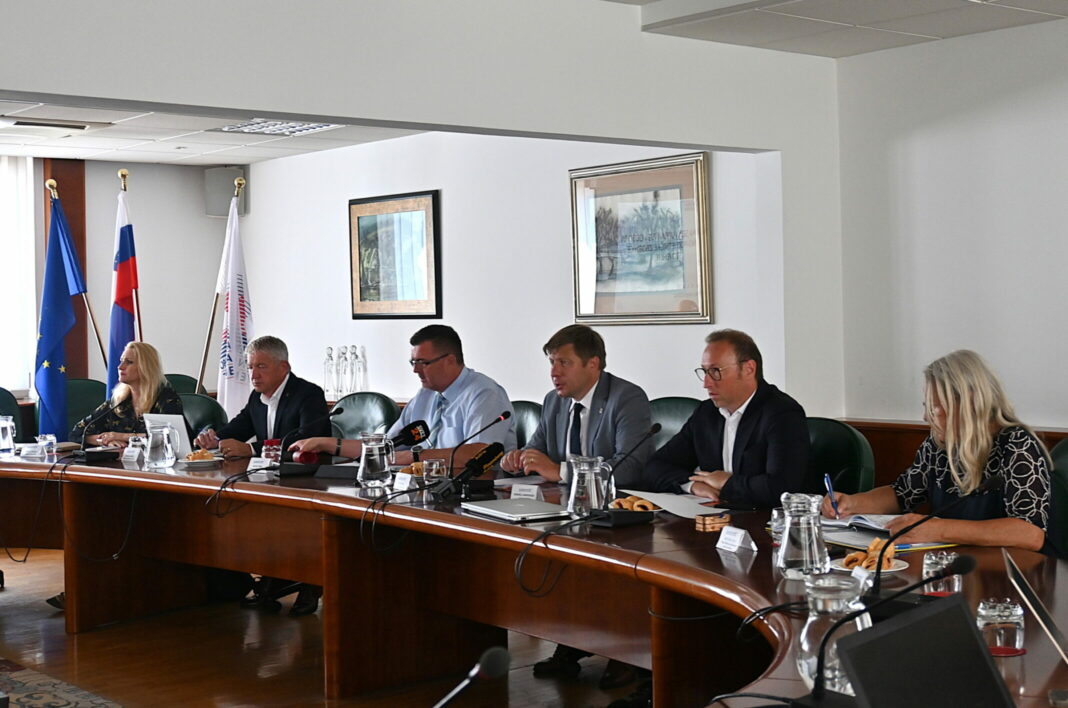By: C. R.
The Management Board of the Chamber of Craft and Small Business of Slovenia (OZS) discussed a package of proposed tax changes at today’s session, which was recently submitted for public consultation by the Ministry of Finance. The proposed changes pertain to personal income tax, corporate income tax, value-added tax, and excise duties. In this context, artisans and entrepreneurs emphasised that they had expected the government to listen to the economy and reduce the high burden on wages. They believe that if the state wants a competitive economy, it should prioritise this issue.
“In the proposals included in the tax change package, artisans and entrepreneurs miss what we most expected: the reduction of wage burdens. It is essential to lower or alleviate wage costs at the contribution level. This would give our employees higher net payments, making it easier to retain them in domestic companies and increasing our competitiveness. It is unacceptable to expect that the economy can bear additional burdens given the already high wage costs,” summarised Blaž Cvar, President of OZS, expressing the disappointment of artisans and entrepreneurs.
Zoran Simčič, President of the Construction Section at OZS, added: “Due to high payroll taxes, employers have great difficulty rewarding workers. If we do not relieve wage burdens, we simply will not have workers because we will not be able to pay them, and they will leave for abroad.”
Bogdan Oblak, President of the Cement, Stonecutting, and Terrazzo Section at OZS, warned about the shadow economy: “With every tax increase, the potential for the growth of the shadow economy significantly increases. Both the state and the economy lose out, creating unfair competition. By relieving the economy and wages and increasing control, we would gain a lot.”
The members of the OZS Management Board also focused on the proposed changes to the system of standardised taxpayers. Their comments were directed at the low thresholds set for simplified business operations for sole proprietors who calculate their tax base based on actual income and standardised expenses.
Regarding standardised taxpayers, President Cvar stated: “We believe that for the part of standardised taxpayers we managed to keep within the €60,000 limit, the taxation is appropriate. However, we fear that with the lowering of the threshold for operating in this form, the shadow economy will increase again. We are convinced that some of these standardised taxpayers who exceed the threshold will enter the shadow economy and will optimise their operations to keep their revenue below it. Therefore, we propose that the entry threshold for the system be €85,000 and that this threshold, allowed by European regulations, also match the entry threshold for value-added tax.”
Marko Gorjak, President of the OOZ Maribor, was also critical of the proposed arrangement for standardised taxpayers: “I am convinced that the proposed changes will not contribute to higher added value and our competitiveness. On the contrary, these changes will hinder the competitiveness of companies with higher added value and worsen the development prospects of small businesses. It also seems to me that the proposals are not in line with the government’s desire for a competitive economy, as it will be far from that with all these burdens.”
They also addressed the proposed relief for key non-resident personnel. They believed that if we want to retain highly educated people in domestic companies, this relief should also be extended to residents who meet the conditions, as there should be no differences.
Due to the non-issuance of building permits, companies are already laying off employees
The OZS Management Board also highlighted the consequences of the strike in administrative units. Due to the non-issuance of building permits, the operations of companies in the field of house production and construction are paralysed, endangering numerous jobs. Houses that are already built cannot be erected because there are no building permits. As a result, companies are already forced to lay off workers or send them on standby. “To prevent the destruction of the Slovenian economy, it is necessary to ensure that the government reaches an agreement with the administrative units so that building permits are issued immediately,” said President Cvar firmly.

